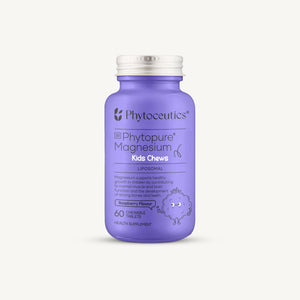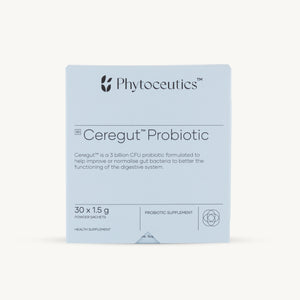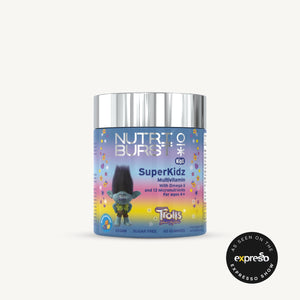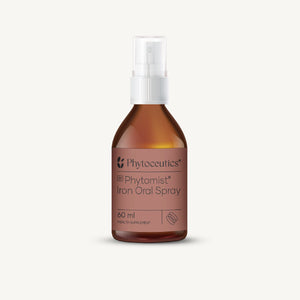Getting children to take their daily supplements can sometimes feel like a battle. Between busy mornings, fussy eaters, and little ones who simply refuse anything that looks or tastes healthy or “medicinal”, parents often struggle to stay consistent. Yet, building strong foundations for lifelong health starts early – and supplements can play an important role in supporting growth, immunity, energy, and digestion.
The trick? Turning supplement time into a routine that feels effortless and enjoyable.
The Challenge with Children’s Supplementation
Parents face a few common hurdles when it comes to supplements for kids:
-
Taste and Texture – Children have sensitive taste buds and often reject strong flavours or chalky textures.
-
Pill Fatigue – Swallowing capsules can be difficult (and intimidating) for little ones.
-
Stomach Sensitivity – Some supplements may cause tummy upset if not formulated gently.
-
Routine Adherence – Busy school mornings and after-school activities leave little room for consistency.
-
Compliance – If supplements look or feel like “medicine”, kids may simply refuse to take them.
How to Make Supplement Time Fun
The secret to success is consistency and creativity. Here are some parent-friendly strategies to make supplement time something kids actually look forward to:
-
Create Routines – Anchor supplement time to an existing habit, like brushing teeth at bedtime or eating breakfast together.
-
Reward Charts and Stickers – Celebrate consistency with a visual tracker. Kids love seeing their progress and earning small rewards [6].
-
Mix It Up – Introduce variety with sprays, chews, powders, and gummies. Different formats help avoid boredom.
-
Make It a Family Habit – Take your own supplements alongside your children. Kids love copying adults and it reinforces the idea that “everyone does this” [6].
Fun Formats That Work
Phytoceutics® products were developed to help solve compliance challenges, especially in children. By offering child-friendly formats, gentle ingredients, and delicious flavours, supplementation becomes less of a struggle – and more of a healthy habit.
Sprays – Fast, Fun, and Fuss-Free
Sprays are ideal for children who dislike pills or powders. They taste good, absorb quickly, and can be taken anytime without water.
-
Phytomist® Iron Oral Spray – Gentle, effective iron that supports growth and energy, while being kind on young tummies. Suitable from age 1 year and older [2].
-
Phytomist® D3 + K2 Oral Spray – A synergistic blend for strong bones and year-round immune support. Especially useful during growth spurts and flu season. Suitable from age 1 year and older [3].
-
Phytomist® B12 Oral Spray – Fast-absorbing energy support that helps reduce tiredness and supports a healthy nervous system. Perfect for picky eaters who avoid meat. Suitable from age 1 year and older [4].
Gummies – A Treat with Benefits
Gummies offer a sweet, chewable option that kids look forward to – without added sugar.
-
Nutriburst SuperKidz Multivitamin Gummies – Packed with omega-3, vitamin D3, vitamin C, and B vitamins to support overall growth and immunity. Suitable from age 4 years and older .
-
Nutriburst DefenceDynamo Immunity Gummies – With vitamin D3, vitamin C, and elderberry extract, these support natural defences while fighting fatigue. Suitable from age 4 years and older .
Powders – Easy to Add to Daily Routines
Mixing powders into smoothies, yoghurt, or juice makes supplements seamless.
-
Ceregut® Probiotic – Clinically studied probiotic strains that support digestion, mood, and nurture a healthy gut-brain connection. Plum flavour and sugar-free, no liquid or mixing required, just pour directly in the mouth. Suitable from age 3 years and older [1].
Chewables – A Simple, Tasty Option
Chews combine convenience with great taste, giving parents a quick solution for restless mornings or after-school pick-me-ups.
-
Phytopure® Magnesium Kids Chews – A raspberry-flavoured sugar-free chew that supports bone strength, reduces restlessness, and helps with muscle cramps and growing pains. Suitable from age 1 years and older [5].
Why Parents Trust Phytoceutics®
We understand that parents want only the best for their children. That’s why every child-friendly Phytoceutics® product is:
- Sugar-free, to support healthy metabolism and dental health.
- Vegetarian-friendly, catering to a wide range of families.
- Gluten-free, making them gentle for sensitive tummies.
- Non-GMO, prioritising purity and safety.
Building Consistency Today for Lifelong Health
Just like brushing teeth or bedtime reading, supplements can become part of a child’s daily rhythm when introduced in a fun, positive way. By choosing formats that kids enjoy – sprays, gummies, powders, or chews – and weaving them into family routines, parents can remove the stress from supplementation.
This content is for informational purposes only and does not constitute medical advice. Always consult with your healthcare provider before starting any new supplement, especially if you are pregnant, nursing, have a medical condition, or are taking prescription or chronic medication.










